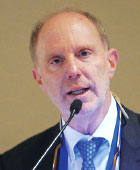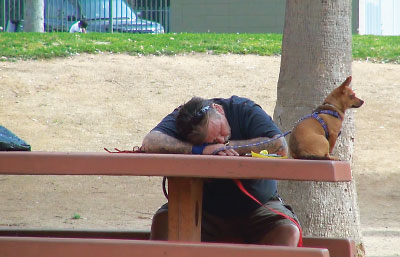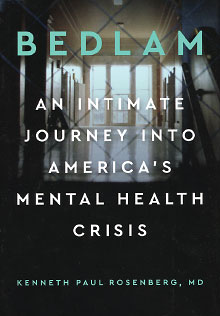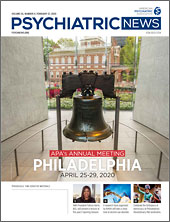I am an addiction psychiatrist in New York City and a documentary filmmaker. My education about mental illness started long before I became a psychiatrist. When I was 14, Merle, my beautiful and kind 20-year-old sister, developed schizophrenia. Her illness, compounded by my parents’ denial, tore at the very fabric of our family and altered the course of each of our lives. Merle died at age 55, not uncommon for people with a serious mental illness, who die decades earlier than the general population. Her autopsy cited a heart attack and a previously undetected breast cancer as causes of death. But I knew the truth: What killed my sister was serious mental illness—accompanied by shame, stubbornness, denial, and confusion.
Since her death, I have come to see that my family’s tragedy is an American tragedy. My family’s shame is America’s great secret. In my own small effort to prevent more premature deaths like Merle’s, I organized a workshop at APA’s 2012 Annual Meeting in Philadelphia called “Bedlam Revisited.” It featured psychiatrists who had been working over the years to call attention to the crisis of people with serious mental illness (SMI), and it was named for the world’s longest-standing asylum: Bethlem Royal Hospital, nicknamed Bedlam. Established in the 14th century, Bethlem Royal Hospital is now a modern and highly regarded psychiatric hospital in suburban London, but “bedlam” remains synonymous with hopeless chaos and incurable madness. At the 2012 workshop, leaders in the field—including Marcia Goin, M.D., Judge Steven Leifman, Paul Fink, M.D., Paul Applebaum, M.D., Nada Stoland, M.D., John Talbott, M.D., Jeffrey Geller, M.D., Colin Dias, M.D., and others—discussed the inadequate resources available to people with SMI and the criminalization of many.
Eight years later, we are returning to Philadelphia for the Annual Meeting, and Dr. Geller is our president-elect. Bruce Schwartz, M.D., and Saul Levin, M.D., M.P.A., also long-time advocates for people with SMI, are our current president and CEO and medical director, respectively. The three of them are bestowing a lifetime achievement award on schizophrenia/bipolar expert E. Fuller Torrey, M.D., at the meeting.
In connection with Dr. Torrey’s award presentation, APA is showing “Bedlam,” my just-completed, 90-minute PBS-sponsored film on the tragic trajectory that many of those with SMI in America experience today. Based in part on that 2012 APA workshop, my film and book (also called Bedlam and published this past fall by Penguin Random House), plunge us into the epicenter of the crisis in Los Angeles, where at least 20,000 people with mental illness live on the streets. The largest mental institution in the United States is the L.A. County Jail, and the main refuge for many is the emergency room at the L.A. County+USC Medical Center. Made with producer Peter Miller, “Bedlam” was the first documentary overview about SMI to be shown at the Sundance Film Festival.
Philadelphia is not just where my “Bedlam” project started; the city has enormous importance to APA, its members, and me. Philadelphian Benjamin Rush, M.D., is recognized as the father of American psychiatry, and APA was founded in Philadelphia in 1844. On a more personal level, Philly is where I grew up and where Merle was first involuntarily hospitalized at one of the nation’s first mental institutions, the Institute of Pennsylvania Hospital.
In the1990s, that hospital ceased its care for those with SMI. Half of the old hospital has since been repurposed as a large homeless shelter for families in Philadelphia. Many asylums have been torn down to make way for today’s jails and homeless shelters. Our nation today, however, may be waking up to our national disaster of untreated people with SMI living on the streets and populating our jails, and APA is working hard to change this situation.
With APA’s support, I hope that the book and film “Bedlam” will serve as a call to consciousness and action. I hope the stories of our patients will move the public to overcome shame and stigma and that more of my colleagues will join the public as an undaunted, unashamed, and unified force that insists on change. ■
“ ‘Bedlam’: A New PBS Film and Book on America’s Mental Illness Crisis—Part 1” will be held Tuesday, April 28, from 1 p.m. to 2:30 p.m. Part 2 will follow from 3 p.m. to 4:30 p.m



